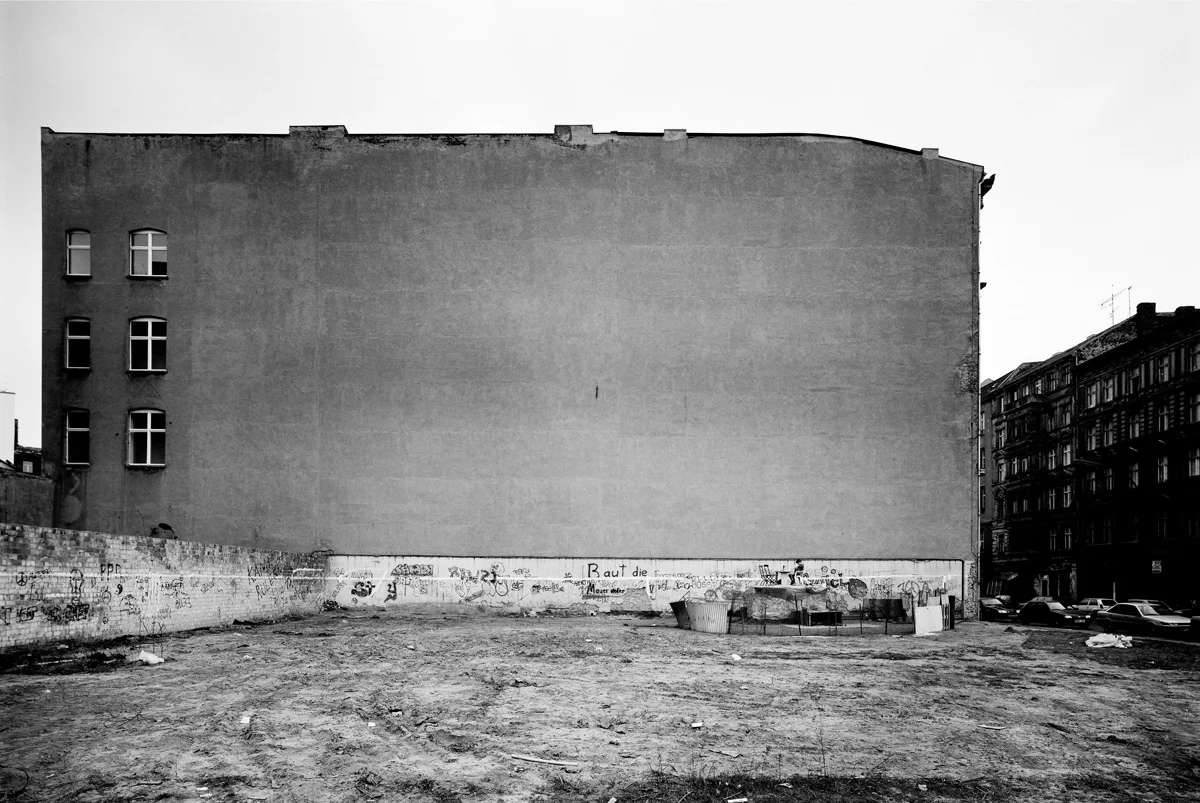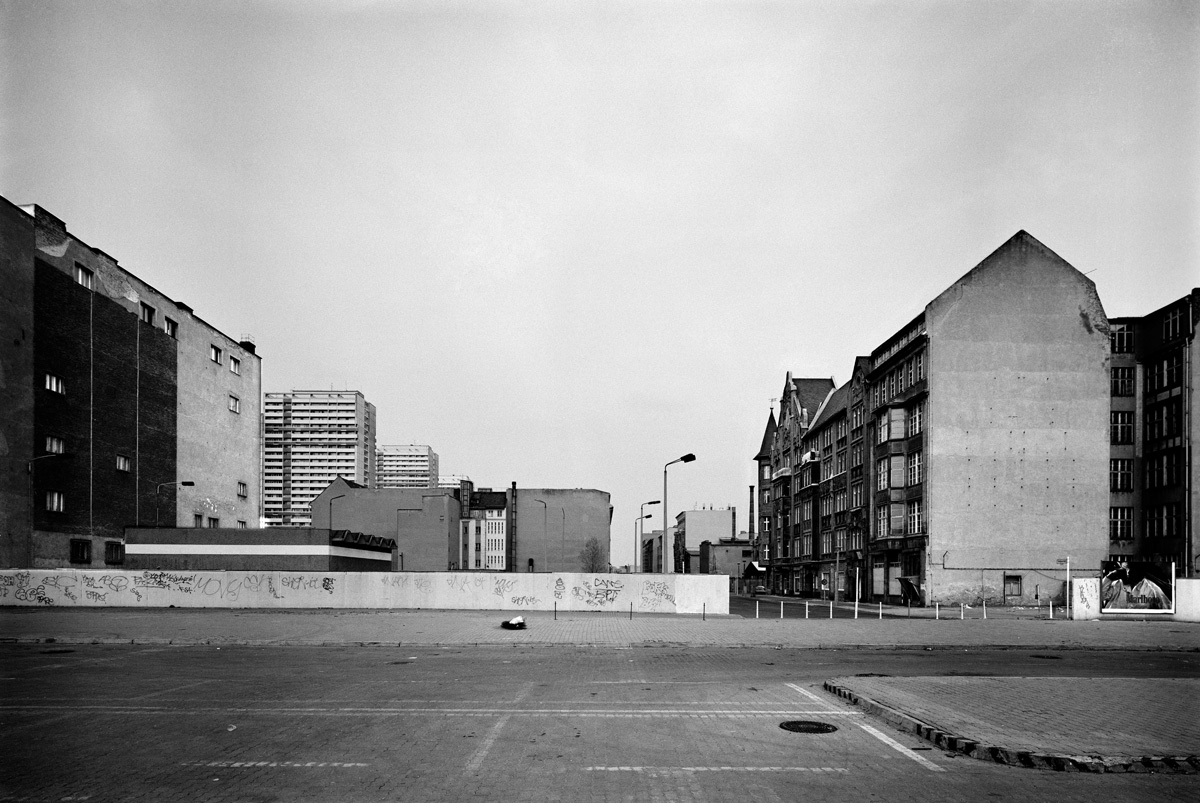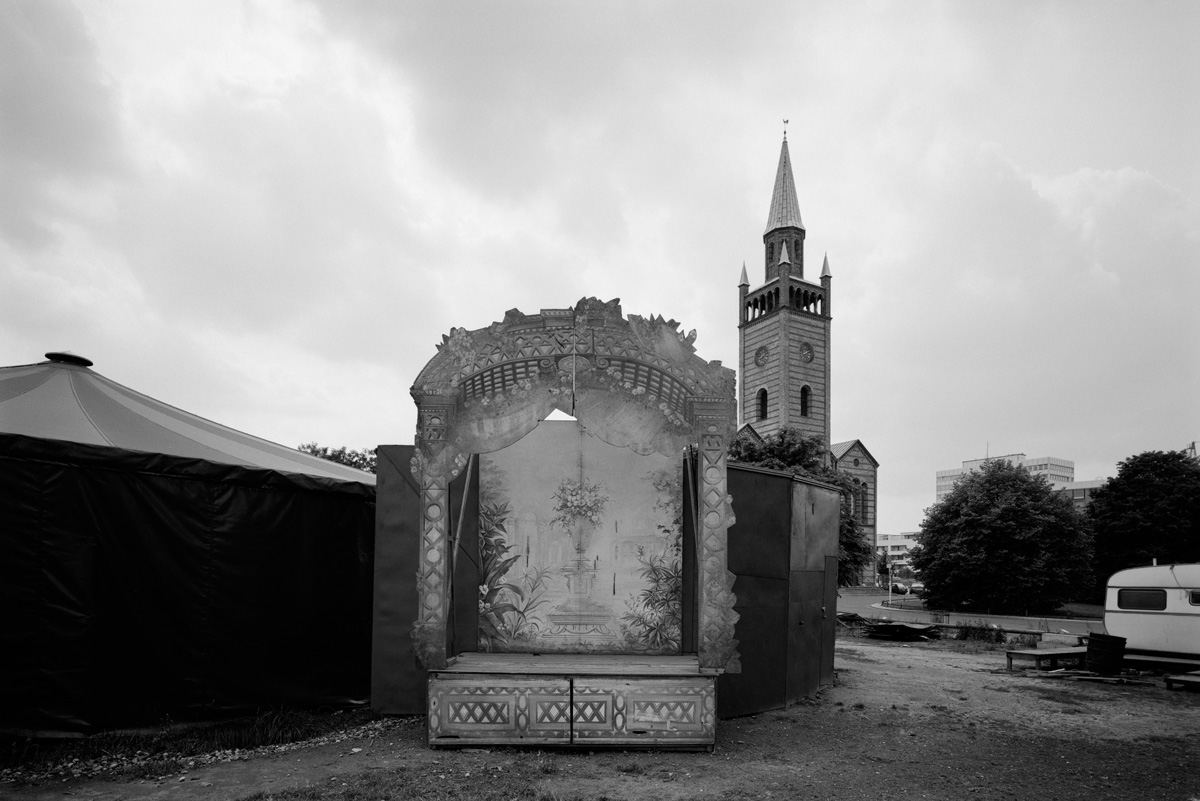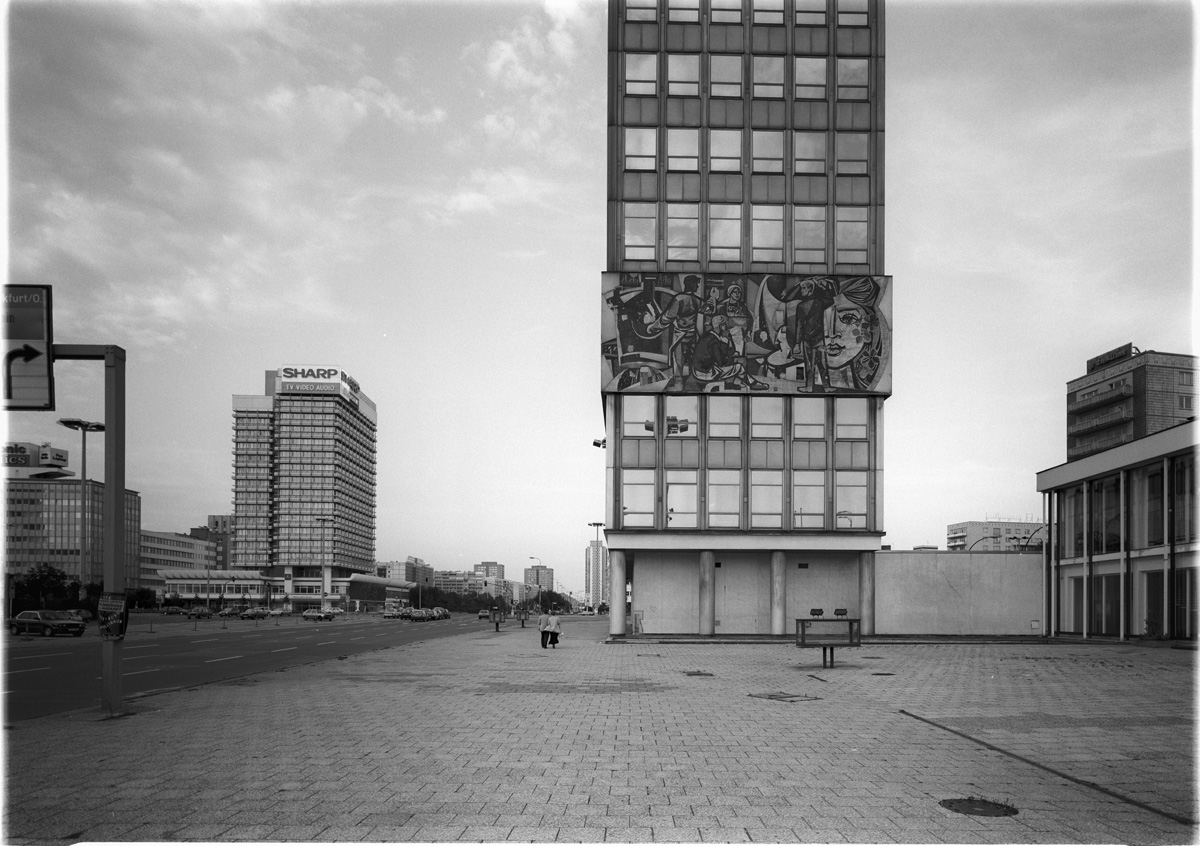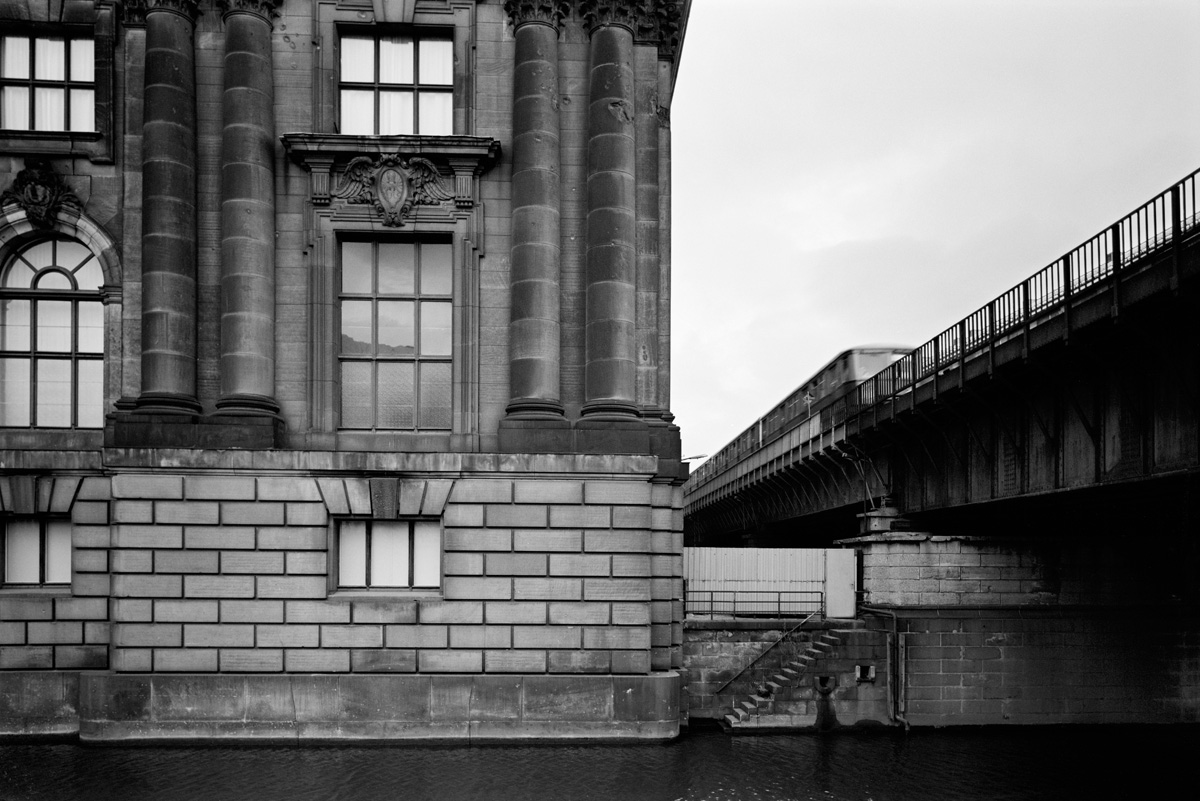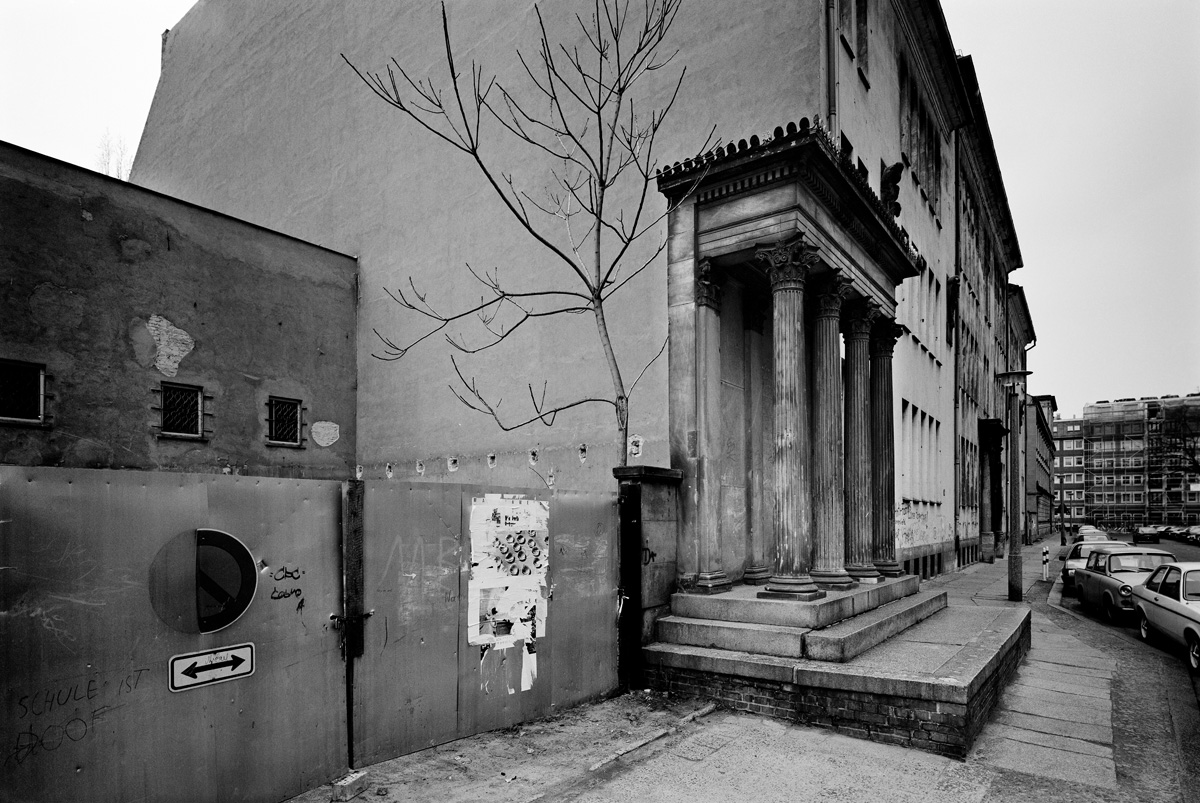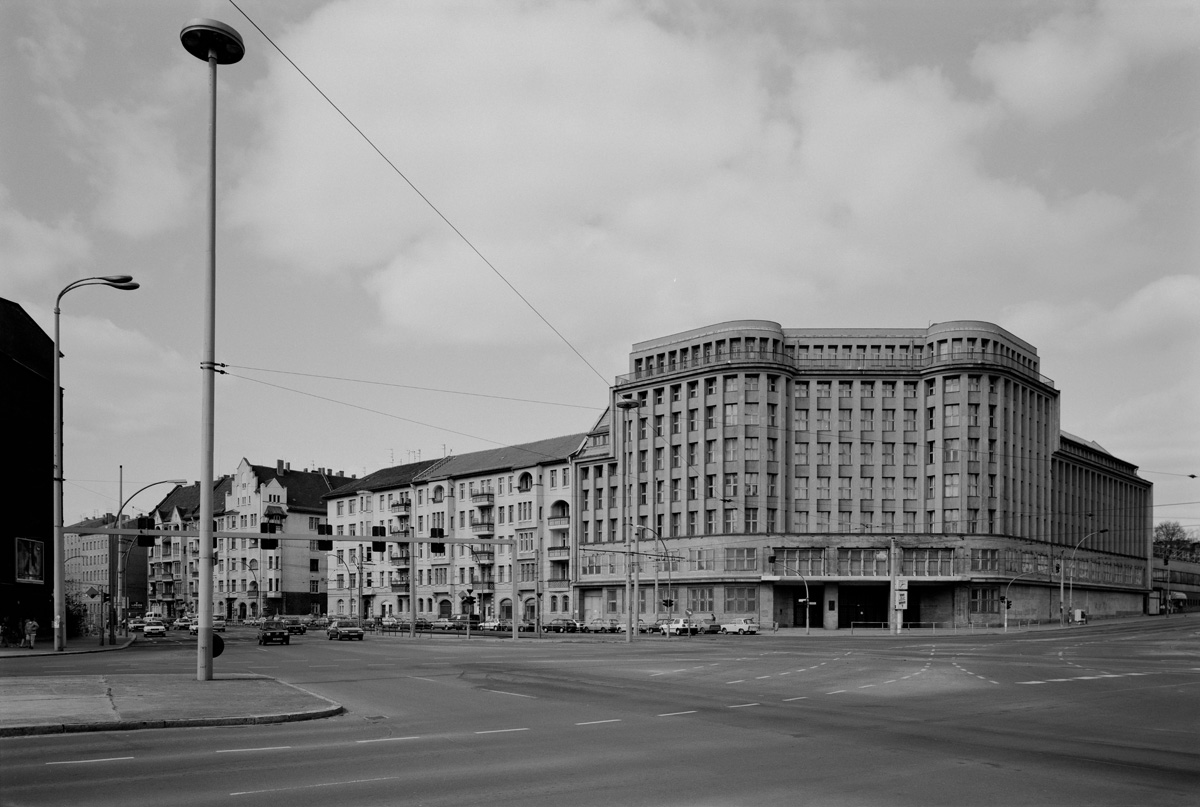BERLIN
Por Josep Lluís Mateo, comisario. Fragmento del texto aparecido en el libro Berlin.
(…) Hay una sensación que frecuentemente acompaña a la fotografía, en especial cuando ésta intenta la empresa que Jordi Bernadó y Ramon Prat aquí han acometido: documentar un momento preciso en la vida una ciudad. Esta sensación es la melancolía. Congelar un momento de la historia, convertir lo efímero en eterno, detectar entre los restos del basurero indicios de otras posibles bellezas, son quizás objetivos no declarados, pero bien presentes en toda ambición documentalista, a la que hay que añadir frecuentemente esta atmósfera especial, enrarecida y llorosa que la melancolía supone. Porque el presente congelado supone un tiempo fuera de la historia; sin pasado y sin futuro, con la suave y quizás estéril condena de pervivir entre las láminas apolilladas del papel impreso.
Bernadó y Prat han acometido su ambicioso proyecto documental priorizando, entre el magma de impresiones que toda ciudad ofrece, dos argumentos, dos líneas de investigación. (Incidentalmente diré, es evidente, que su propuesta es objetual. La ciudad es vista como volumen y como vacío, abandonando cualquier pretensión sociológica, cualquier visión epitelialmente humana). El primer argumento que les ha interesado es la descripción del bloque berlinés inicialmente macizo en la preguerra y descompuesto y descoyuntado por los bombardeos, en donde la presunta precisión geométrica antigua ha saltado para convertirse en geometrías complejas próximas a las vitrificaciones magmáticas de la naturaleza. De ahí su insistencia en las medianeras y en el espacio vacío, silencioso y disponible que éstas configuran, no muy lejanas a las imágenes con las que, hace años, Wim Wenders descubrió su ciudad. (…)
Written by Josep Lluís Mateo, curator. Excerpt from the text that appeared in the book Berlin.
(…) There is a sensation which frequently accompanies photography, especially when it sets out on the venture which Jordi Bernadó and Ramon Prat have undertaken here: to document a specific moment in the life of a city. This sensation is melancholy. To freeze a moment in history, to convert the ephemeral into eternal, to detect among the garbage and rubble signs of possible other beauties are possibly objectives which, though undeclared, are nonetheless present in every documentary ambition, to which frequently must be added that special atmosphere, rarefied and mournful, that melancholy brings with it. For the frozen present implies a time outside history; without past and without future, on which the gentle and possibly sterile sentence has been passed to survive among the worm-eaten sheets of printed paper.
Bernadó and Prat have set out on their ambitious documentary enterprise by giving priority, among the magma of impressions that every city offers, to two arguments, two lines of research. (Incidentally, I would say that their proposal is evidently objectual. The city is seen as volume and as void and all sociological pretensions, all epithelially human visions, are rejected). The first argument that has interested them is the description of the Berlin block, initially solid before the war and then decomposed and dismembered by the bombardments, in which the former apparent geometrical precision has become broken down into complex geometries comparable to the magmatic glazings of nature. Hence their insistence on party walls and the empty space, silent and available, that they form, not very far removed from the images with which, years ago, Wim Wenders described his city. (…)

